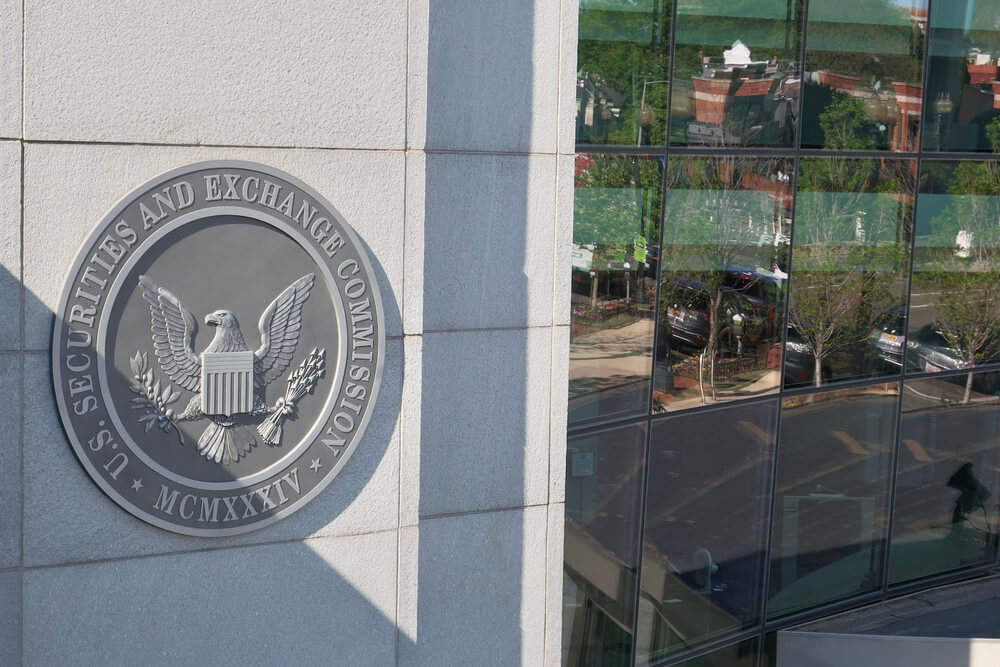Greetings, Agents of Impact!
Featured: ImpactAlpha Original
Pro-business has a new meaning now. Someone tell the Trump administration. Please don’t call it pro-business. The operating environment created by the Trump administration is at odds with the growing recognition in business and finance that sustainability, inclusion and stakeholder accountability are necessary ingredients of long-term prosperity. The confusion extends to market analysts and even business journalists, some of whose post-mortems on the late Supreme Court Justice Ruth Bader Ginsburg’s legacy fell into the category error that pits inclusion and sustainability as antagonistic to business. The champion of women’s full participation in the economy was called the Supreme Court’s “least pro-business justice,” in Quartz this week, even as the pro-business advantages of women’s leadership and greater participation in the economy have become conventional wisdom. Pro-business is urgent action to mitigate the climate emergency. Pro-business is crushing the pandemic. Pro-business is eliminating systemic bias in lending and hiring. Pro-business is free, fair elections and the peaceful transfer of power.
The confusion was on display this week as the Securities and Exchange Commission forged ahead with a rule that will make it harder for shareholders to file resolutions that can serve to alert management to emerging risks. “It’s a given across the investor and business communities that mitigating environmental and social risk and good governance are fundamental to long term sustainability,” Josh Zinner of the Interfaith Center for Corporate Responsibility told ImpactAlpha. Racial justice activists are pro-business as well, forcing a needed re-evaluation of the systemic risk of injustice and income and wealth inequality. With a grand jury in Kentucky failing to bring charges against police for the killing of Breonna Taylor, it’s worth remembering that cities that treat their residents fairly have longer, stronger fiscal outcomes, according to Activest’s Ryan Bowers. Racism and discriminatory practices in education, housing and access to business loans and other areas have cost the economy $16 trillion since 2000, Citigroup says in a new study. Reversing racial gaps would add $5 trillion over five years, says the bank. Call the Trump administration what you will. Just don’t call it pro-business.
Keep reading, “Pro-business has a new meaning now. Someone tell the Trump administration,” by Dennis Price, Amy Cortese and David Bank on ImpactAlpha.
Sponsored: Tideline
Strengthening trust in impact investing. How do you know if impact claims and promises are backed up by practices and reports you can trust? The solution is third-party impact verification. Join Tideline’s Christina Leijohnhufvud and industry leaders from the CDC Group, LeapFrog Investments, Rockefeller Foundation and Ford Foundation to hear how impact verification represents the next frontier for impact investing, Thursday, Oct. 1 at 9am ET / 2pm BST. RSVP today.
Dealflow: Follow the Money
Reinsurance firm Africa Specialty Risk Group launches with backing from Helios. Africa Specialty Risk Group, or ASR, will offer reinsurance—insurance for insurers—to encourage new business and investment activity for Africa’s COVID recovery. Insurance, critical to business and investment activity, is supported by insurers’ ability to mitigate their risks through reinsurance. Insurance penetration in Africa is low, and reinsurance options are typically provided by global firms like Axa or Munich Re. When COVID hit, that limited presence dwindled. Africa-focused private equity firm Helios backed ASR’s launch from its fourth fund. Terms of the deal were not disclosed.
- Risk mitigation. ASR aims to be a sustainability-focused reinsurance firm, “using Africa-specific pricing models coupled with a deep understanding of African risk and cultural environments,” according to a statement. The company, led by former executives from AXA Africa Specialty Risks and South Africa-based Old Mutual, says it will incorporate environmental, social and governance, or ESG, considerations across its business and will build capacity for local underwriters. Sustainability will also be a way to mitigate its risks; insurance and reinsurance firms globally are being battered by climate impacts.
- Check it out.
MacArthur Foundation commits $25 million to COVID recovery and election integrity. Grants totaling $10 million went to organizations supporting Black, Native and other under-represented groups disproportionately affected by the pandemic. Recipients include: Cultural Survival, Native Voices Rising, and the Chicago Racial Justice Pooled Fund. Another $15 million went to organizations strengthening voter education and fighting voter suppression, including the Leadership Conference Education Fund, Media Democracy Fund and United We Dream.
- COVID response. MacArthur was one of five foundations to commit $1.7 billion over three years to the pandemic recovery process. With its $125 million contribution, funded through a social bond, MacArthur joined the Doris Duke Charitable Foundation, and the Ford, Kellogg and Mellon foundations.
- Read on.
USAID commits $2.6 million to solar companies powering Africa’s health centers. At least 60% of Africa’s health clinics have no access to electricity; those that do often grapple with unreliable power. Power Africa, through the U.S. Agency for International Development, awarded grants to nine solar ventures to finance reliable off-grid electricity for nearly 300 African healthcare facilities. Among the grantees: PEG Solar in Ghana, OffGridBox in Rwanda and OnePower in Lesotho.
Brazil’s BeGreen raises $3 million to expand urban farms. The Belo Horizonte-based company sets up indoor farms in shopping malls and parking lots in Brazil’s urban hubs and sells fresh produce boxes to nearby customers. The company markets itself as a sustainable alternative in part because of its shorter transport chain to customers. Shopping center developer Aliansce invested to help BeGreen build eight new farms near its malls, Contexto reports.
Signals: Ahead of the Curve
DWS cuts back sustainable investing funds and teams in U.S. shakeup. The $869 billion wealth manager that spun out of Deutsche Bank two years ago has cut back its New York-based sustainable investing team and shelved impact funds targeting microfinance institutions and renewable energy in sub-Saharan Africa. The reorganization may be less of a referendum on sustainable and impact investing, which has been growing rapidly, than a reflection on internal issues at DWS. Other wealth managers have struggled as well to align incentives for advisors, client demands and impact funds and products that may be smaller and less familiar than traditional alternatives.
- Global team. DWS’s sustainable investments team had been organized around financial inclusion and microfinance, financing for social enterprises in agriculture, health and energy, and energy efficiency and renewable energy. Of the eight team members, three found other positions at the company and five have been let go. “Our sustainable investment team is global and continues to have a U.S. presence,” a spokesman for DWS said in a statement. “Impact investing is a key component of DWS’s responsible investing capabilities and remains an important area of growth for our strategy going forward.”
- Winding down. The shakeup leaves in doubt the future of Deutsche Bank’s agreement with the Green Climate Fund to raise capital for renewable energy projects in sub-Saharan Africa. The Green Climate Fund, based in South Korea, had committed $78.4 million in first-loss capital that was intended to catalyze as much as $300 million more from commercial investors. Also, a DWS microfinance fund that has operated for two decades is likely to wind down as assets are repaid.
- Keep reading.
Agents of Impact: Follow the Talent
Paul Yett, formerly managing director of Hamilton Lane, will lead the firm’s ESG efforts as director of ESG and sustainability… Brown Brothers Harriman joins the Principles for Responsible Investment and the United Nations Global Compact… The Netherlands launched a national advisory board to promote impact investment, becoming the 33rd country to join the Global Steering Group for Impact Investment. It will be chaired by Social Impact Ventures’ Willemijn Verloop, an ImpactAlpha Agent of Impact.
Goldman Sachs seeks an environmental and social risk associate for its sustainable finance group in New York… The Institute for Local Self-Reliance is hiring a senior policy advocate, preferably in the Washington, D.C. area… VC Include is hosting “Black Voices in Sustainable Investing,” with Rachel Robasciotti, Stephan Nicholeau, Marilyn Waite, Taj Eldrige and Bahiyah Yasmeen Robinson, Thursday, Oct. 1… EVPA’s “Building Alliances for Impact” virtual conference concludes today, Sept. 24.
Thank you for reading.
–Sept. 24, 2020











